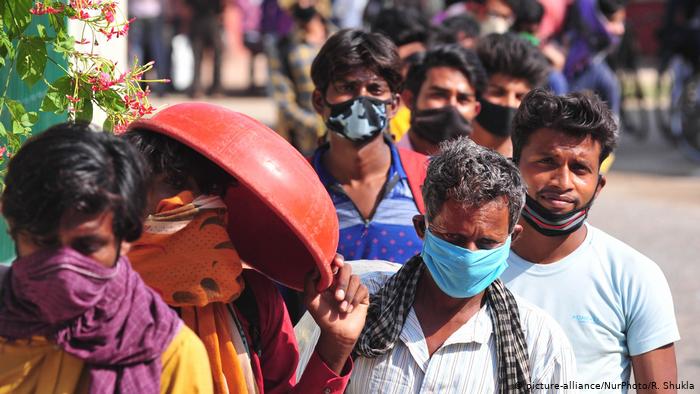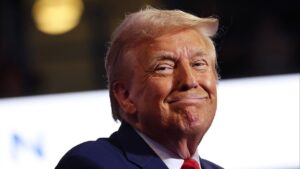India has announced plans to spur small and medium businesses as part of a $264bn (£216bn) economic package.
These include an emergency credit line of collateral-free loans worth $40bn to to “resume business activity and safeguard jobs” in the wake of India’s lockdown to curb coronavirus.
Finance Minister Niramala Sitharamn said more measures will be announced in the coming days.
India has more than 70,000 confirmed cases of Covid-19.
The economic package is equivalent to 10% of India’s gross domestic product.
Ms Sitharaman outlined a series of measures to infuse much-needed liquidity into India’s small and medium businesses, power distribution companies, non-banking financial institutions and micro-finance firms, among other things.
Other key announcements included a move bail out more than 200,000 ailing small and medium businesses and prohibiting global tenders for government procurements worth up to $26.5m to help local businesses sell to government.
“The measures will spur growth and build a self-reliant India,” Ms Sitharaman said.
“The intention is to build local brands and make them world class. It’s not (about) looking inwards or (being) isolationalist. It’s (about a) confident India that contributes to the globe,” she added.
The country’s very strict lockdown, which started on 25 March, has had a huge economic impact, with tens of millions of poorer Indians and migrant workers hit hardest.
Mr Modi said on Tuesday said that stay-at-home orders would be extended beyond 17 May with a new set of rules.
- Why India cannot afford to lift its lockdown
- Why next few weeks are critical in India virus war
- Will coronavirus cause food shortages in India?
In March, India said it would provide around 1.7 trillion rupees in direct cash transfers and food security measures, mainly for the poor.
However, Mr Modi’s administration had been accused in some quarters of not having done enough.
It comes as governments and central banks in other countries around the world have provided unprecedented levels of support for their economies to tackle the crisis.
“India’s response has so far been tepid compared to other key nations and thus the catch-up is welcome and is also the need of the hour,” said economist Madhavi Arora at Edelweiss FX and Rates.
“It needs to be seen how much will be in the form of direct budgetary support to gauge the immediate fiscal hit and the consequent funding sources,” he added.













